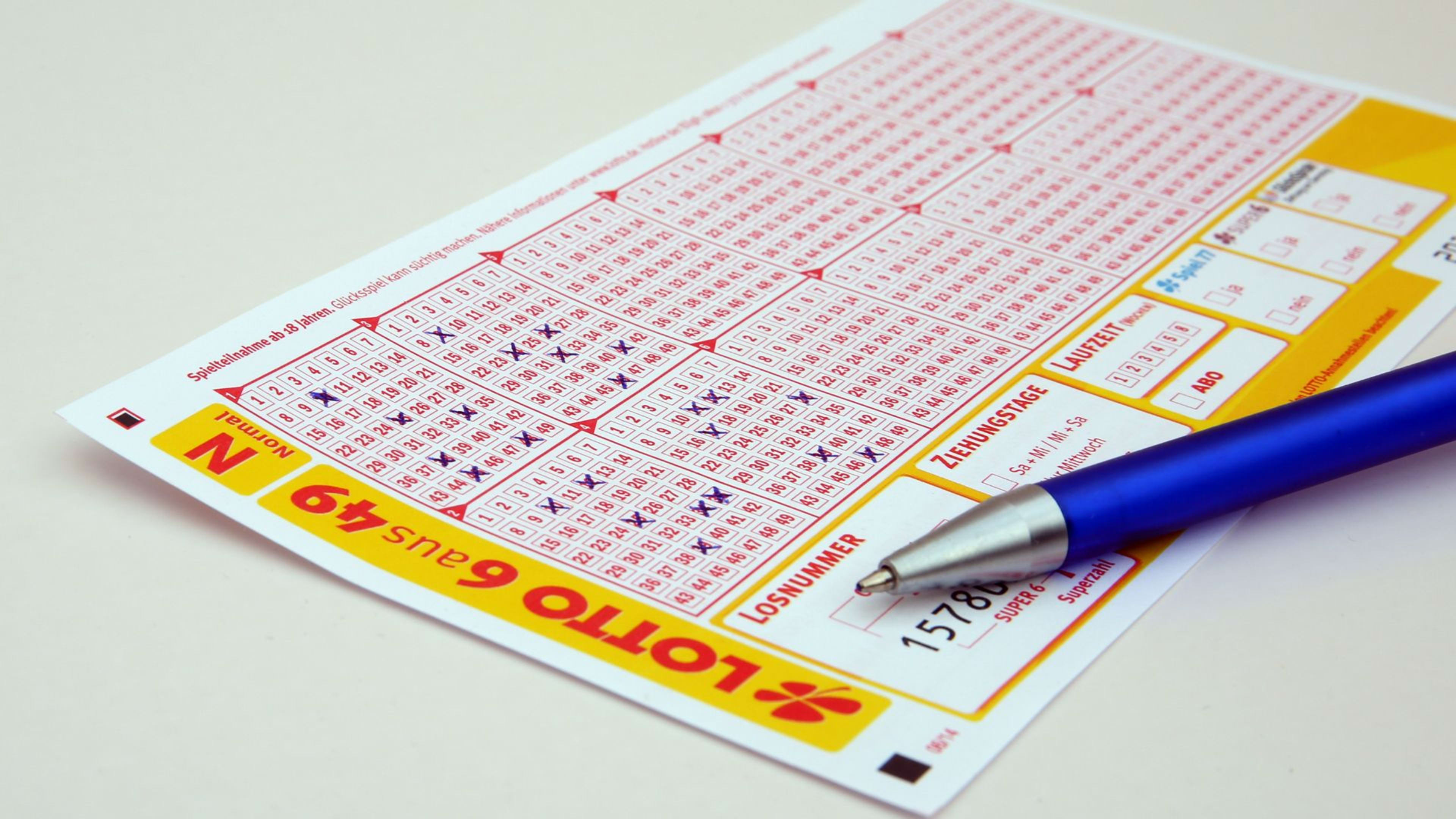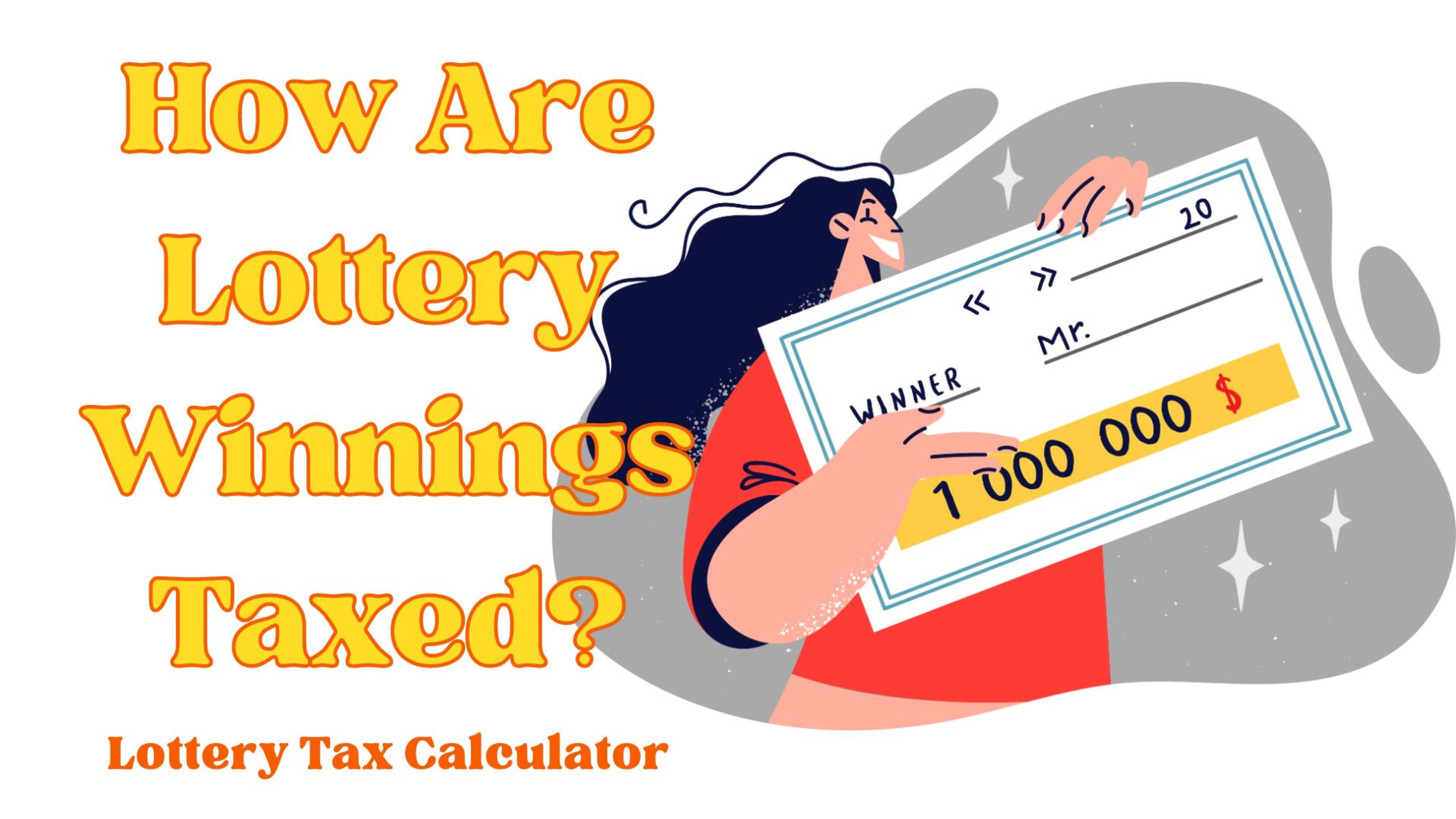Dreaming about winning the lottery often involves visions of yachts, mansions, and endless vacations. But the tax man is also waiting in the wings to take his share. This article aims to demystify the tax obligations associated with lottery winnings in various countries, including New Zealand. We'll break down what percentage of your winnings you can expect to part with, offering examples to make things crystal clear for Kiwi players.
Taxes on Lottery Winnings in New Zealand
In simple terms, winning the lottery means the government might take a share of your winnings in the form of taxes. While many countries have specific lottery taxes, New Zealand is a notable exception for most players. Unlike income from a job, your lottery winnings are generally tax-free here. However, rules can differ depending on how and where you play. For offshore online casinos, tax implications for New Zealand players can be complex.
New Zealand's Tax-Free Winnings
Good news for New Zealand residents! If you win a prize from a lottery run by New Zealand Lotteries Commission (like Lotto NZ or the Health Lottery), your winnings are generally not taxed. This applies whether you win a small prize or the big jackpot. This favourable tax treatment makes playing the local lottery quite appealing.
So, if you win $1,000,000 from Lotto NZ, you keep the full $1,000,000 before any potential deductions for prizes other than cash. It's a straightforward win!
International Lotteries and Online Casinos
The situation can become a bit murky when you play international lotteries or bet on outcomes via. For instance, if you're playing on an overseas online casino platform, any winnings generated might be considered foreign income by Inland Revenue (NZ's tax authority). While casual betting winnings are often not taxed, regular or professional gambling activities, or substantial winnings from offshore sources, could potentially attract tax. It's always best to confirm with Inland Revenue or a tax professional if you're unsure about your specific situation as a New Zealand player.
Lump Sum vs. Annuity for International Prizes
If you happen to win a substantial prize from an international source that *is* subject to tax, the way you receive the winnings can matter. Winners often have two ways to collect their prize: a one-time lump sum or in installments over several years, known as an annuity. Both have tax implications.
- Lump Sum: If you choose the lump sum, you receive your winnings immediately, but it’s usually a smaller amount than the total jackpot value due to discounted present value. You’ll likely pay all the applicable taxes at once, which might push you into a higher tax bracket for that year.
- Annuity: If you opt for the annuity, your winnings are spread over several years (often 20 to 30). Each year, you'll pay taxes only on the amount you receive that year. This might result in a lower overall tax bill, especially if the annual payments don't push you into a higher tax bracket.
Example: Imagine you win a hypothetical international jackpot of $1,000,000 (NZD) that is subject to taxation. You have the option to receive the winnings either as a lump sum or as an annuity over 30 years. Assume a hypothetical flat tax rate of 20% applies to these foreign winnings for this illustration.
| Lump Sum Prize: | Annuity Option: |
| Lump Sum Amount: $1,000,000 | Annual Annuity Payment: $1,000,000 / 30 years = $33,333.33 |
| Tax (20%): $200,000 | Tax (20%): $33,333.33 * 20% = $6,667 |
| Total Tax Paid: $200,000 | Total Tax per Year: $6,667 |
| Total Tax over 30 Years: $6,667 * 30 = $200,010 | |
| Net Amount Received: $800,000 | Net Amount Received over 30 Years: $1,000,000 - $200,010 = $799,990 |
In this example, the lump sum results in a higher upfront tax payment but a slightly larger overall net amount after 30 years. The annuity spreads the tax burden and offers a steady income stream. Remember, this is a simplified illustration.
It's crucial to remember that the example uses simplified tax rates and calculations for illustration. In reality, tax laws can be complex, and factors like your individual tax situation, other income sources, and changes in tax legislation can all influence the final tax liability. For any significant winnings from international lotteries or online gaming, consulting a qualified tax professional in New Zealand is essential to understand your specific obligations.
Understanding Gambling Taxes for New Zealand Players
When considering taxes on gambling winnings in New Zealand, the key takeaway is that most common forms of lottery play are tax-free. However, for winnings derived from overseas online casinos or professional gambling activities, seeking expert advice is highly recommended. This ensures you remain compliant with NZ tax laws.
- Local Lotteries (e.g., Lotto NZ): Generally tax-free for New Zealand residents.
- International Online Casinos/Betting: May be considered foreign income and potentially taxable. Professional gambling is always taxable.
Example: Imagine you won a prize of CNY 100,000. Here's how you'd calculate your after-tax amount:
- Tax-free amount: CNY 10,000 (because it's below the threshold)
- Taxable amount: CNY 90,000 (the rest of your winnings)
- Tax on CNY 90,000: 20% of CNY 90,000 = CNY 18,000
So, from your CNY 100,000 winnings, you'd take home CNY 82,000 after the tax deduction.

Types of Lotteries and Taxation in Japan
In Japan, there are different types of lotteries, including the Takarakuji and Numbers lotteries. The taxation rules can vary based on the type of lottery and the amount of winnings.
Takarakuji Lotteries: These are the most common lotteries in Japan, known for their big jackpots. When you win in a Takarakuji lottery, your winnings are generally subject to two types of taxes: income tax and local inhabitant's tax.
- Income Tax: The income tax on your winnings is calculated based on a progressive tax rate. This means that the more you win, the higher the percentage of tax you'll need to pay. The tax rate can range from around 5% to 45%, depending on the amount of your winnings.
- Local Inhabitant's Tax: In addition to income tax, you may need to pay local inhabitant's tax, which is determined by your municipality. This tax is calculated based on your income, including your lottery winnings, and the rates can vary from one area to another.
Numbers Lotteries: Numbers lotteries are another form of lottery in Japan, focusing on number-based games. Winnings from Numbers lotteries are generally subject to a flat withholding tax rate of about 20.315%. This tax is deducted from your winnings before you receive the payout.
Example 1: Let's say you win ¥1,000,000 in a Takarakuji lottery. The income tax rate for this amount falls within the 10% bracket. This means you would owe ¥100,000 in income tax. Additionally, if your local inhabitant's tax rate is 5%, you would owe ¥50,000 for this tax. So, your total tax obligation would be ¥150,000.
Example 2: Imagine you win ¥500,000 in a Numbers lottery. The withholding tax rate for Numbers lotteries is around 20.315%. Therefore, the tax deduction from your winnings would be approximately ¥101,575, leaving you with a net payout of ¥398,425.
Taxes on Lottery Prizes in Spain
In Spain, lottery winnings are considered income. This means that the government will take a piece of your winnings as tax. How much tax you pay depends on how much you win. Starting January 1, 2020, any lottery win over €40,000 is subject to a tax rate of 20%.
Example: Imagine you win €100,000. The first €40,000 is tax-free, but you'll have to pay 20% tax on the remaining €60,000.
Here’s the math:
- €100,000 (Total Winnings) - €40,000 (Tax-Free Amount) = €60,000 (Taxable Amount)
- €60,000 x 0.20 (20% Tax Rate) = €12,000 (Tax Due)
So, if you win €100,000, you would take home €88,000 after taxes.
UK Lottery: The Tax-Free Dream
Here's the fantastic news to start with: In the UK, all lottery winnings are tax-free! This means that whether you win £10 or £10 million, you get to keep every penny. Unlike some countries where large winnings face hefty tax deductions, in the UK, the prize amount announced is the prize amount you get.
Example: Imagine winning £5 million in the National Lottery. In the UK, you get to bank all £5 million without any deductions. Meanwhile, in another country, a 20% tax might reduce your take-home to £4 million. Lucky for UK winners, their prize is untouched!
While the initial winnings are tax-free, it's important to remember that once that money is in your bank account, it doesn’t remain entirely untouched by taxes.
- Interest Income: Let's say you win £1 million and deposit it in a bank account. If your bank gives you 3% interest annually, that’s £30,000 extra in a year. This interest will be taxed as per your income tax slab.
- Gifts: If you decide to share your joy and give away a portion of your winnings to friends or family, it could potentially attract inheritance tax if it's above the threshold, and you pass away within seven years of gifting the money.
- Investment Income: If you invest your winnings, any profit or income generated from those investments is likely to be subject to tax. If you invest in a property and then rent it out, the rent you receive will be taxable income.

Do You Pay Taxes on Lottery Winnings in Canada?
In Canada, lottery winnings are not considered regular income, so they are not taxed like your job’s salary would be. Instead, they're seen as a windfall or a one-time gain. That's good news for winners, as they get to pocket the full amount they win.
Example: Imagine you win $1 million in a Canadian lottery. Unlike some countries where you might only get, say, $600,000 after taxes, in Canada, you get the whole $1 million. The entire amount is yours to keep!
So, No Taxes At All?
Well, it's not quite that straightforward. While you don't pay taxes on the actual winnings, any interest or income generated by those winnings in the future is taxable. Think of it like this: the initial money you win is tax-free, but the money that money makes isn’t.
Example: You decide to put your $1 million lottery winnings in a savings account that earns interest. At the end of the year, let’s say you earn $10,000 in interest. That $10,000 is taxable, and you will need to report it on your yearly income tax return.
Winning the lottery is a dream for many, but it’s essential to understand the tax implications that come with it. Both federal and state taxes will take a chunk of your winnings, and you’ll need to decide how you want your payout. While it might seem daunting, with the right knowledge and a little planning, you can navigate these waters with ease and truly enjoy your windfall. And always remember, while it’s tempting to focus on the amount being taken away, you’re still left with a significant amount from your lottery win. Enjoy it responsibly!
FAQ
Do you pay taxes on lottery winnings in the USA?
Yes. In the USA, lottery winnings are subject to both federal and state taxes. For instance, if you win $10 million in a state lottery:
- The federal government could take about 24% ($2.4 million) off the top.
- Depending on the state, an additional state tax might apply, which can range from 0% to more than 8%. For instance, in New York, an additional 8.82% ($882,000) could be deducted.
Are lottery winnings taxable in the UK?
No. In the UK, the full lottery winning amount is tax-free. For example, if you win £5 million in the UK National Lottery, you take home the full £5 million without any deductions.
How are lottery winnings taxed in Spain?
In Spain, winnings above €40,000 are taxed at 20%. So, if you win €1 million in the Spanish lottery, you'd pay tax on €960,000 (€1 million minus the €40,000 exemption), resulting in a tax bill of €192,000.
Are Australian lottery winnings taxable?
No. In Australia, lottery winnings aren't considered income. If you win AUD 3 million in the Australian Powerball, you receive the entire amount without any immediate tax implications.
Do you pay taxes on lottery winnings in Canada?
No. In Canada, lottery winnings are treated as windfalls. Winning CA$5 million in Lotto 6/49 means you get the full CA$5 million. However, interest earned on those winnings is taxable.
How does France tax lottery winnings?
Lottery winnings exceeding €5,000 in France are subject to a 20% tax. So, if you win €500,000, after exempting the first €5,000, you'd pay a tax on €495,000, which amounts to €99,000.
Are Italian lottery prizes taxed?
Yes. In Italy, if your lottery winnings exceed €500, a 20% tax applies. If you win €2 million in the SuperEnalotto, the tax payable would be €400,000, leaving you with €1.6 million.
Is lottery prize money taxable in South Africa?
No. A R20 million win in South Africa's Lotto is completely yours, with no immediate tax deductions. However, interest on the winnings would be taxable.
How are lottery winnings taxed in Brazil?
Brazil imposes a 13.8% tax on lottery winnings. Winning R$10 million in Mega-Sena would result in a tax of R$1.38 million, giving you a net of R$8.62 million.
Are lottery winnings in Germany subject to tax?
No. If you win €4 million in the German Lotto 6aus49, you receive the entire €4 million without any tax deductions.
Are lottery winnings taxable in India?
Yes. In India, lottery winnings are subjected to a flat rate of 30%. Additionally, cess and other surcharges might apply. For instance, if you win ₹10 crore in the Kerala Lottery:
- The tax would amount to ₹3 crore.
- With cess and other surcharges, the effective rate could rise, reducing your take-home amount further.
How does Russia tax lottery winnings?
In Russia, lottery winnings exceeding 4,000 rubles are taxed at 13% for residents and 30% for non-residents. If you win 100 million rubles:
- As a resident, you'd pay 13 million rubles in tax.
- As a non-resident, your tax would be 30 million rubles.
How are lottery winnings treated in Ireland for tax purposes?
In Ireland, lottery winnings are tax-free. So, if you're lucky enough to win €5 million in the Irish Lotto, you take home the entire amount. However, any income derived from the winnings, like interest, will be taxable.
Are Lottery Winnings Taxable in New Zealand?
Great news for Kiwi players! Lottery winnings in New Zealand are generally not considered taxable income. This means that if you strike it lucky with a Lotto, Powerball, or any other lottery game in New Zealand, the full amount you win is yours to keep, without the government taking a cut.
What Happens if I Invest My Lottery Winnings?
While the initial lottery winnings are tax-free, any income generated from investing those winnings, such as interest from a bank account or dividends from shares, is subject to income tax in New Zealand. It's a good idea to consult with a financial advisor to understand the tax implications of your investments.
Are There Any Exceptions to the Tax-Free Lottery Rule?
In very specific circumstances, if you are deemed to be a professional gambler, your lottery winnings might be considered taxable income. However, this is rare and would only apply if gambling is your primary source of income. For most Kiwis, lottery winnings are a tax-free windfall.
What About Lottery Syndicates? Are the Winnings Taxed Differently?
No, the tax treatment is the same for lottery syndicates. The winnings are tax-free when distributed to the members of the syndicate. However, as with individual winnings, any income generated from investing the winnings is taxable.
Do I Need to Declare My Lottery Winnings to Inland Revenue?
Generally, you don't need to declare your lottery winnings to Inland Revenue (IR) in New Zealand, as they are not considered taxable income. However, it's always a good idea to keep records of your winnings in case you need to prove the source of funds for any future investments or purchases.
What Happens if I Gift Some of My Winnings?
Gifting some of your lottery winnings doesn't usually trigger any tax implications for you as the giver. However, it's important to be aware of gift duty rules, although gift duty has been abolished in New Zealand. Significant gifts might have implications for the recipient in terms of their own income or benefits.
Are My Lotto Winnings Protected if I Go Through a Divorce?
In the event of a divorce or separation, lottery winnings are generally considered relationship property and are subject to division between the parties. The specific division will depend on the circumstances of the relationship and how the winnings were managed during the relationship. It's advisable to seek legal advice in such situations.
What is the Best Way to Manage a Large Lottery Win?
Winning a large sum of money can be overwhelming. It's recommended to seek professional advice from a financial advisor, accountant, and lawyer. They can help you create a plan for managing your winnings, investing wisely, and minimizing your tax obligations on any income generated from your winnings. Remember to gamble responsibly.
Are online casino winnings taxable in New Zealand?
Similar to lottery winnings, proceeds from online casinos are generally not taxable in New Zealand, as they are considered "windfall gains." However, if gambling becomes your primary source of income, it may be classified differently. Always consult with a tax professional for personalized advice.
What happens if I win a prize from an overseas lottery?
If you win a prize from an overseas lottery while residing in New Zealand, the winnings are generally not taxable in New Zealand. However, the tax implications in the country where the lottery is based may apply. It's essential to check the tax laws of that specific country.
Are prizes from promotional draws or competitions taxable?
Prizes won from promotional draws or competitions are generally not taxable in New Zealand, as they are considered "windfall gains." However, if the prize is convertible to cash or is received as part of your employment, it may be subject to tax. Always consult with a tax professional for personalized advice.
What records should I keep of my lottery winnings?
Even though lottery winnings are generally not taxable in New Zealand, it's a good idea to keep records of your winnings, such as the lottery ticket, the date of the draw, and the amount won. This can be helpful if you need to prove the source of funds for any future investments or purchases.
Where can I get more information about tax on winnings in New Zealand?
For more detailed information about tax on winnings in New Zealand, you can visit the Inland Revenue (IR) website or consult with a tax professional. They can provide personalized advice based on your specific circumstances. Remember to gamble responsibly and seek help if you feel you have a gambling problem.















